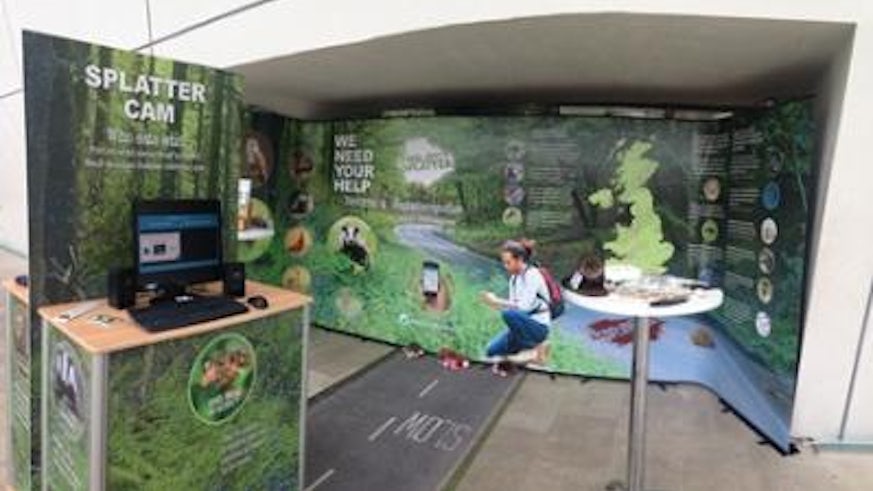Cardiff highlights value of university research in national campaign
10 June 2014

Cardiff University is this week featuring in a UK-wide campaign to highlight the value and importance of university research to our everyday lives. Universities Week 2014 launched on Monday 9 June at the Natural History Museum in London where a week-long public event is showcasing some of the best of UK university research.
Researchers from Cardiff will join teams from 44 other UK universities represented at the Museum during the week. The exhibition will include research stations, pop-up performances, debates and live research demonstrations, covering a range of research themes.
From Cardiff's School of Biosciences, a research team is highlighting their citizen science projects, Project Splatter and the Otter Project, which both rely on the general public submitting data via social media. 'Splatter spotters' report their roadkill sightings on Facebook and Twitter and the data are then collated to identify hotspots. This is the first survey of its kind in the UK and the data could eventually lead to solutions for reducing the numbers of wildlife killed on Britain's roads.
Otters reported to Project Splatter are collected and examined by Cardiff University Otter Project who conduct post mortems to find out about otter biology and health. Otters are used as an 'environmental sentinel', generating information about pollutants that can affect human health as well as other wildlife. Planned as a long term study the data reported will help to produce a 'roadkill map' for the whole of the UK. Throughout the week, visitors will be able to visit Project Splatter and the Otter Project exhibit at the museum and speak to the researchers behind it.
Project Splatter researcher Dr Sarah Perkins from Cardiff University's School of Biosciences said: "We've had lots of budding scientists come and help us carry out a 'post mortem' with our model otter 'Colin'. We're also recruiting lots of citizen scientists to help build our map of wildlife roadkill and we're increasing awareness about how roadkill can inform science and conservation. "
As part of the weeklong campaign, Professors Paul Atkinson and Judith Okely, from Cardiff's School of Social Sciences and Oxford University, respectively, will be celebrating 40 years of Ethnography in a series of events commencing with a free public talk. The presentation will touch on a host of ethnographic studies (the study of peoples and cultures) ranging from living in gypsy camps to milking cows in Normandy.
Another feature of the week will be the Translating Holocaust Poetry workshop held on Thursday 12 June in the Centre for Lifelong Learning by Professor Jean Boase-Beier of the Cardiff School of European Languages, Translation and Politics.
The week launched officially on Monday evening 9 June by the Universities and Science Minister David Willetts MP at the Natural History Museum. As well as the week-long exhibition at the Natural History Museum, there will be a range of other activities taking place across the UK as part of Universities Week 2014, to promote and engage the public with the value and importance of university research.
Nicola Dandridge, Chief Executive of Universities UK, said: "The aim of Universities Week is to inspire the public about the world-leading research taking place in our universities.
"Led by some of the top researchers in the UK, the event at the Natural History Museum will be a fantastic showcase event for UK higher education. By hosting this free-to-attend and high-profile event, we hope that members of the public will be inspired and will leave having learned something new about how universities are helping to solve some of the UK's, and world's biggest challenges.